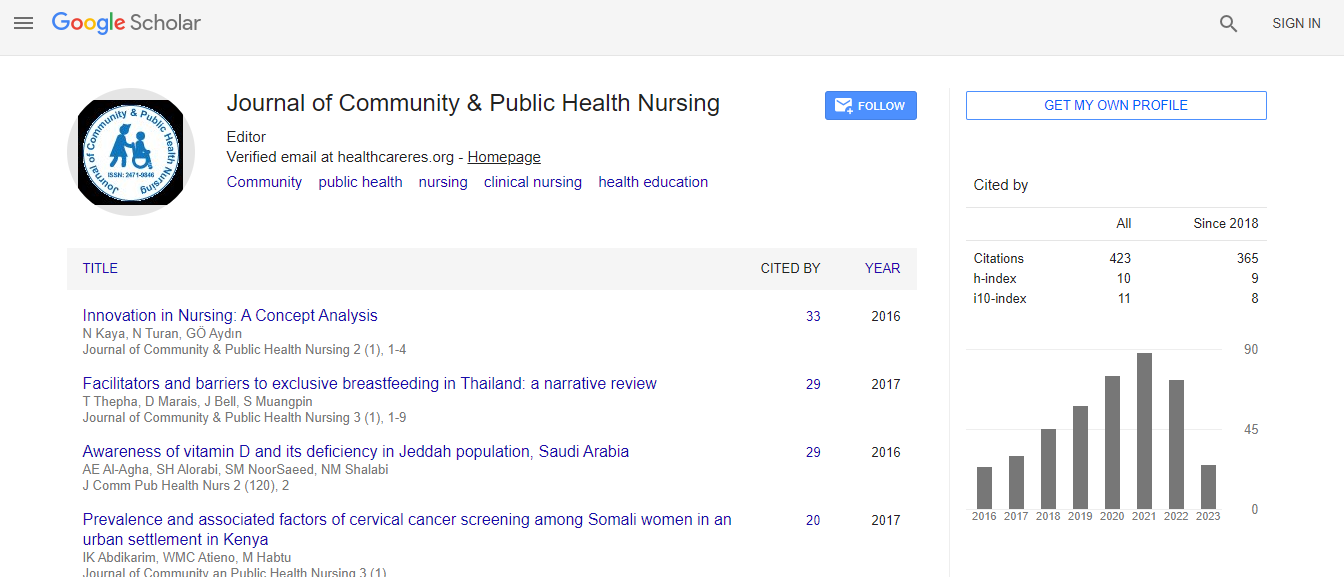Research Article
Do Educational Interventions with Mothers Enhance the Quality of Life of their Children with Chronic Functional Constipation in a Randomized Trial?
Gabriela Cunha Schechtman Sette1*, Ana Márcia Tenório de Souza Cavalcanti1, Maria Wanderleya de Lavor Coriolano1, Gisélia Alves Pontes da Silva2, Maria Eugênia Farias Almeida Motta2and Luciane Soares de Lima11Department of Nursing; Federal University of Pernambuco, Recife, Brazil
2Department of Mother-child; Federal University of Pernambuco, Recife, Brazil
- *Corresponding Author:
- Gabriela Cunha Schechtman
Professor, Department of Nursing
Federal University of Pernambuco
Recife, Brazil
Tel: +55-81-21263932
Email: gabrielacssette@gmail.com
Received date: February 06, 2017; Accepted date: March 06, 2017; Published date: March 13, 2017
Citation: Sette GCS, de Souza Cavalcanti AMT, de Lavor Coriolano MW, da Silva GAP, Motta MEFA, et al. (2017) Do Educational Interventions with Mothers Enhance the Quality of Life of their Children with Chronic Functional Constipation in a Randomized Trial? J Comm Pub Health Nurs 3:164. doi:10.4172/2471-9846.1000164
Copyright: © 2017 Sette GCS, et al. This is an open-access article distributed under the terms of the Creative Commons Attribution License, which permits unrestricted use, distribution, and reproduction in any medium, provided the original author and source are credited.
Abstract
Aim: To analyse the effect on the quality of life of children with chronic functional constipation when performing educational intervention on mothers, using the technique of focus groups, in a prospective randomized trial.
Method: This study was conducted on the paediatric gastroenterology clinic of the teaching hospital of the Federal University of Pernambuco, from November 2012 to May 2013. A prospective study of educational intervention in health was applied on two randomized groups (experimental and control) that was formed from a sample of 55 participants according to the Rome III criteria. Mothers from the experimental group participated of a focus group that used active methods of teaching and learning in order to elucidate the biopsychosocial issues surrounding constipation. Children from both groups kept the usual treatment held by the paediatric gastroenterologist during the monthly medical visits. In order to measure the primary outcome - quality of life - the questionnaire PedsQLTM 4.0 Generic Core Scales was applied to both groups before and after the intervention. The data related to clinical parameters and quality of life of participants before and after the intervention were analytically compared in both groups with the significance level p ≤ 0.05.
Results: This study included 55 mothers of children and adolescents with disorders of defecation, 11 in the educational intervention group and 44 in the control group. After monitoring the mothers that participated in focus groups for six months, the outcome quality of life was represented by a total score of 89.13, whilst the total score before the intervention was 78,26 (p=0,00).
Conclusion: The quality of life of patients with functional constipation improved after the intervention. Therefore, the educational intervention on focus groups with mothers configure a therapeutic alternative to patients and families living with defecation disorders.

 Spanish
Spanish  Chinese
Chinese  Russian
Russian  German
German  French
French  Japanese
Japanese  Portuguese
Portuguese  Hindi
Hindi 
